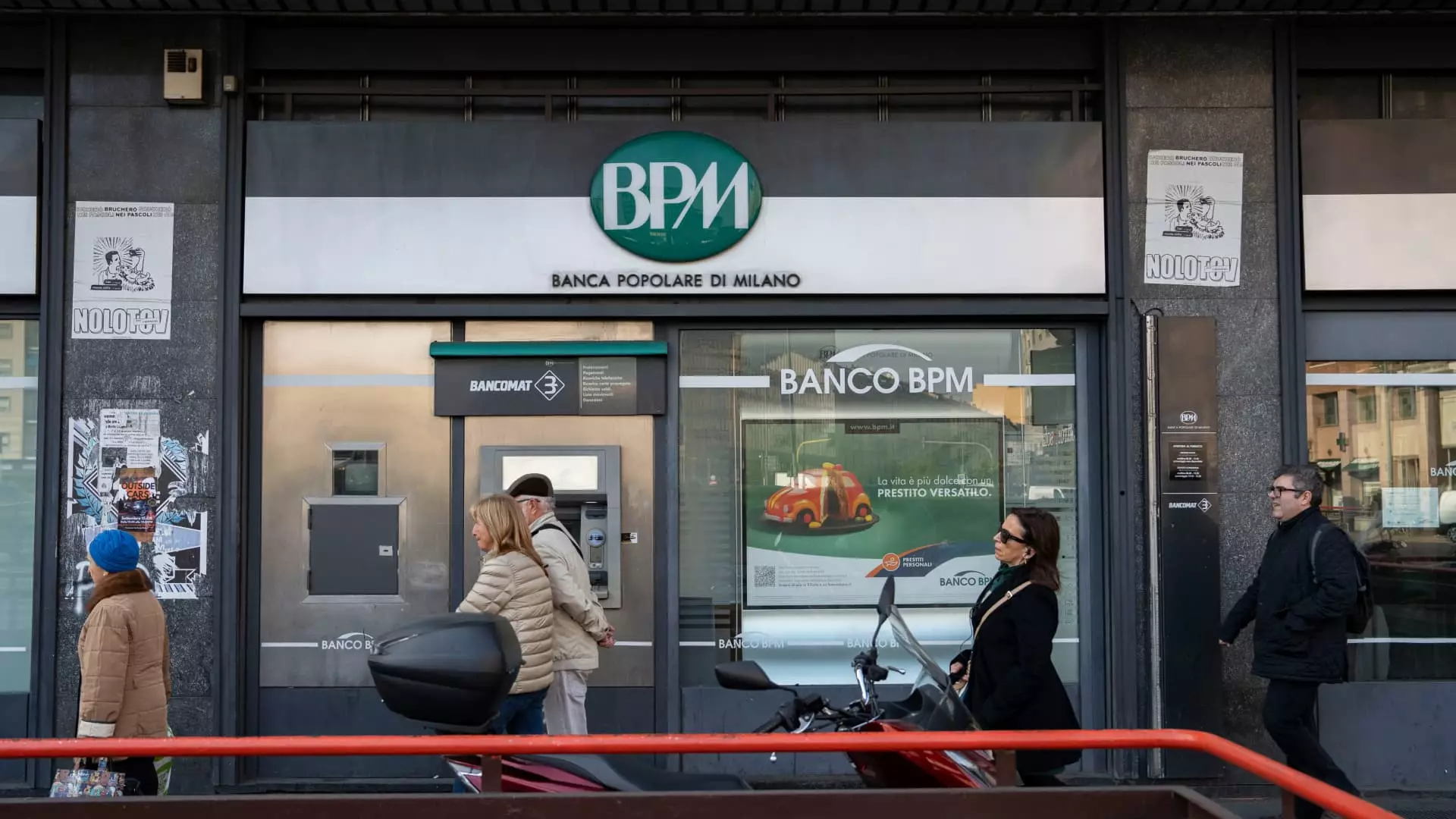The Italian banking sector is undergoing significant transformation, marked by a series of merger and acquisition discussions that stir both opportunities and challenges for the institutions involved. A recent overture by UniCredit, proposing a €10 billion takeover of Banco BPM, has ignited a wave of responses from the target bank’s board, positioning them firmly against the bid. This article delves into the motivations behind Banco BPM’s dismissal of the takeover offer, the potential repercussions of such a merger, and the broader implications for the Italian banking industry.
Banco BPM’s board articulated a clear message concerning UniCredit’s unsolicited takeover proposal: they believe it undervalues their profitability and future growth potential. The assertion highlights a fundamental aspect of merger and acquisition negotiations: valuation. The bank contends that such an offer overlooks the underlying strength of its operations and the capacity for generating further returns. The board’s remarks indicate a sensitivity to how inflated investor perceptions can complicate strategic decisions. It raises the question—how does one accurately evaluate a financial institution’s worth, particularly in a competitive and rapidly evolving market like Italy’s?
Implications of a Hasty Merger
A critical element of Banco BPM’s rejection stems from concerns regarding the rapid timeline suggested by UniCredit for any potential merger. The board fears that an expedited process could erode Banco BPM’s legal autonomy, ultimately compromising the bank’s unique operational philosophies and culture. Indeed, mergers often face the challenge of blending different corporate cultures, and without time for an adequate transitional phase, the outcomes can be destabilizing. The implication here is clear: for Banco BPM, a merger is not merely a financial transaction but an essential alignment of values and objectives.
As UniCredit positions itself as a formidable player seeking a dual agenda that includes interest in both Banco BPM and Germany’s Commerzbank, geopolitical implications arise. The Banco BPM board signified concerns over the diversion of focus from expansion opportunities within Italy to potential uncertainties associated with operations in Germany. Stakeholders in the banking sector must recognize that strategic decisions are rarely made in a vacuum; they are affected by governmental stances and even international relations. UniCredit’s ambition to augment its influence in the German market, amid resistance from the German government, suggests that systemic challenges persist, complicating their broader consolidation efforts.
UniCredit’s bid of €6.657 per share, while presenting itself as a premium over Banco BPM’s recent closing price, raises skepticism among stakeholders when viewed alongside the bank’s actual financial performance. The limited premium speaks to a possible undervaluation in a sector that benefits from robust performances. This juxtaposition challenges market analysts to rethink the valuation metrics commonly applied in the banking sector. The scrutiny of standard financial ratios, especially in light of pending government consent for UniCredit’s stake in Commerzbank, suggests a broader pattern in which financial stakeholders need to engage in deeper evaluative dialogues.
Market Reactions and Future Outlook
Market responses to the bid have been telling, with UniCredit’s shares remaining flat while Banco BPM’s shares saw a minor decline. This illustrates a market skeptical of the takeover’s immediate benefits. Furthermore, the Italian government’s apprehensive stance towards UniCredit’s ambitions, as articulated by Economy Minister Giancarlo Giorgetti, indicates a complex interplay between market forces, governmental oversight, and strategic corporate maneuvers.
As Banco BPM firmly holds its ground, it sets a precedent for the future of mergers and acquisitions in Italy. The resistance to an unsolicited takeover not only signifies the importance of valuing autonomy and localized strengths but also underscores the intricate dance between profitability and market share expansion in a competitive international banking landscape.
Banco BPM’s rejection of UniCredit’s takeover bid is driven by a confluence of factors including concerns about undervaluation, cultural integrity, and geopolitical ramifications. The evolving dynamics of the Italian banking industry demand that institutions navigate these waters thoughtfully, balancing growth aspirations with stable operational practices. As the landscape continues to shift, the decisions made today will likely redefine the banking terrain in Italy in the years to come. This scenario encapsulates a crucial moment—not just for the banks involved but for the sector as a whole, highlighting the necessity for strategic foresight in a fast-evolving economic environment.

